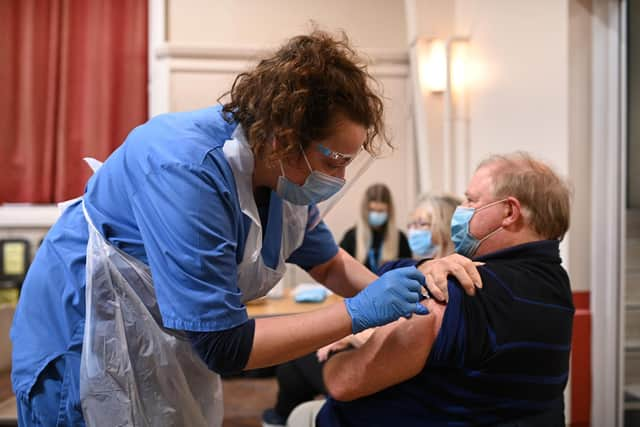Thousands of adults with learning disabilities in Sheffield could be prioritised for coronavirus vaccine
and live on Freeview channel 276
Some adults with severe learning disabilities have already received their first jab or were due to be invited in the next stage of the rollout in England, but disability campaigners and charities had warned this left many with less severe conditions at risk from the virus.
The Joint Committee on Vaccination and Immunisation said on February 24 that all adults on the GP learning disability register should be invited for a jab alongside others in priority group six – people aged 16-64 with underlying health conditions.
Advertisement
Hide AdAdvertisement
Hide AdNHS data shows 3,450 adult patients in the Sheffield CCG area were identified by their GP as having a learning disability as of September last year – the latest available figures.


But the Department of Health and Social Care (DHSC) said not all those signed up with a GP who have a learning disability will be on the official register, including people with mild disabilities or neurodiversity.
The Sheffield patients were among 260,000 adults with learning disabilities on GP books across England – with 51,054 in the Midlands.
The charity Mencap has called for people to check with their GP to ensure they can access the vaccine.
Advertisement
Hide AdAdvertisement
Hide AdJackie O'Sullivan, executive director of communication, advocacy and activism at Mencap, said the announcement was "fantastic news".
She added: “It's now crucially important that everyone with a learning disability checks that they are on the register and asks to go on it if they are not.
"Being on the register has many benefits and entitles people to annual health checks and prioritisation for future vaccinations, as well as allowing them to get the Covid vaccine and be confident they are protected.”
Analysis of Office for National Statistics figures by Mencap suggests there are 951,000 people with a learning disability across England – with 182,000 of those in the Midlands – although the DHSC puts it at 1.2 million.
Advertisement
Hide AdAdvertisement
Hide AdNationally, around 224,000 people with learning disabilities are thought to be 65 and over, while 25,000 have Down’s Syndrome.
They will have already been offered their first jab due to being in the top four priority groups, which were reached by mid-February.
Those with severe and profound learning disabilities (around 350,000) were already in group six, as are an estimated 100,000 with other serious health issues.
This had meant an additional 100-200,000 people with mild or moderate learning disabilities were not in any of the nine high-priority groups – though some CCGs had made the decision to prioritise them prior to the latest advice.
Advertisement
Hide AdAdvertisement
Hide AdProfessor Anthony Harnden, deputy chairman of the JCVI, told MPs that leaving it to local health authorities to decide which people in their areas had “more severe” learning difficulties may have led to some inequalities.
The committee is now calling for others within the community, who may not yet be registered as having a learning disability, to be identified.
Recent ONS figures show the risk of death involving Covid-19 was 3.7 times greater for people with a medically diagnosed learning disability, compared with people who did not have one.